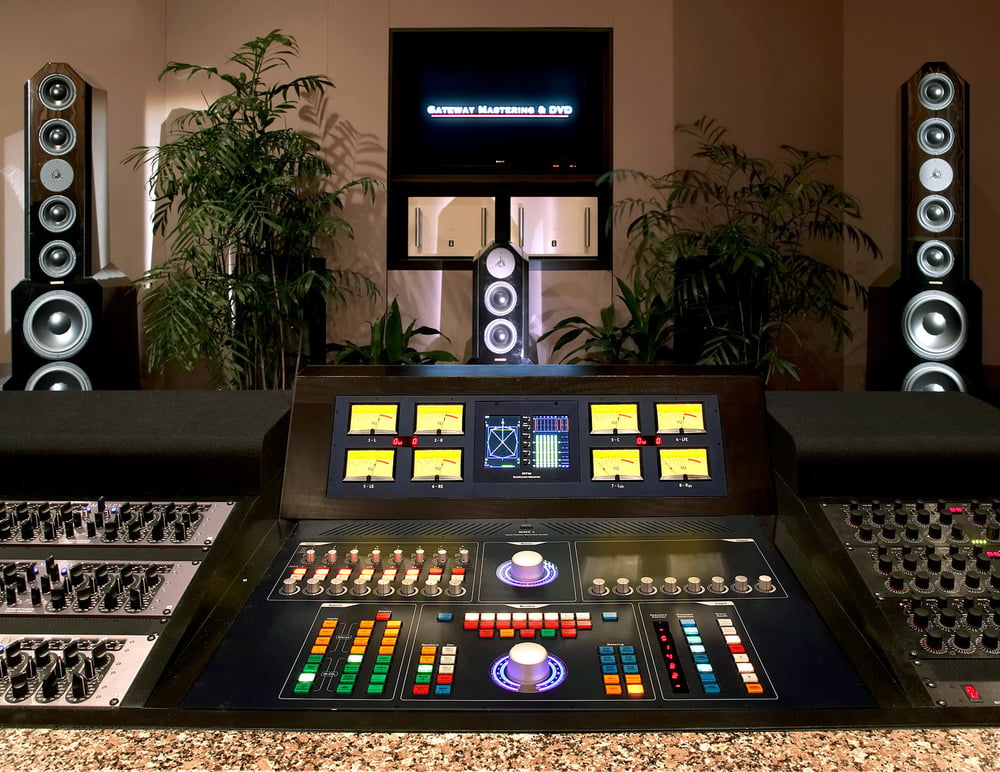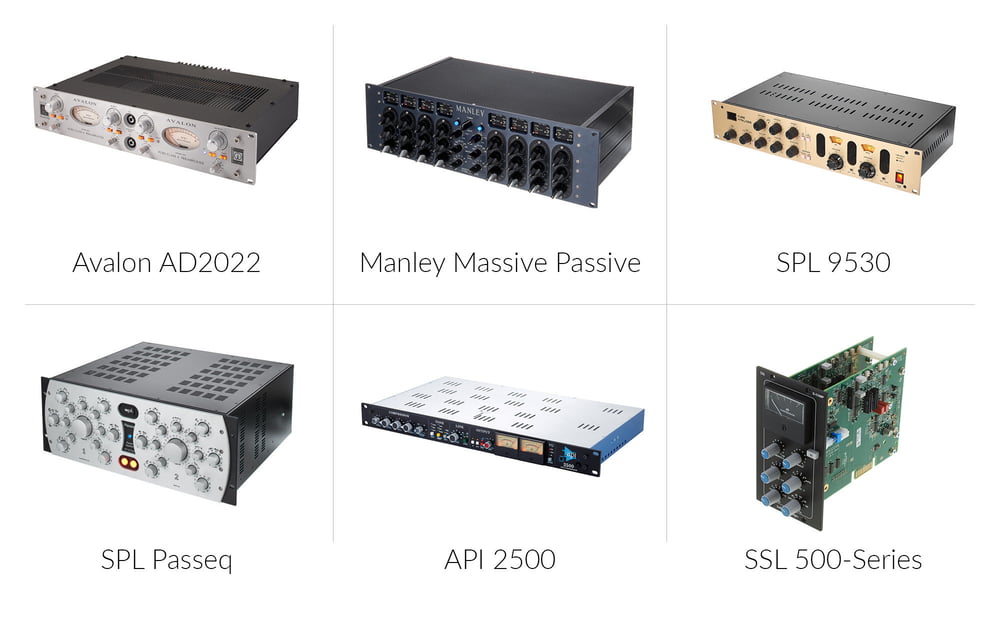10. Mastering
Imagine your studio is up and running. Everything has been hooked up and installed, you've done your first recordings and mixed them to create finished songs. Now you maybe want to have a CD pressed. Before you get this done, you need to master your mix. But what exactly is "mastering"?
Nowadays, the process of mastering comprises three discrete parts: audio mastering, pre-mastering, and mastering.
Audio mastering
This is where you fine-tune your finished stereo mixes (not the indicidual tracks). You can balance the frequency response using sophisticated equalisers and filters, improve the dymanics with a compressor/limiter, or refine the recording's acoustic spatiality with top-notch reverb and stereo base expansion. All these modification concern nuances of sound - while they may not be absolutely necessary, they can turn a good mix into an excellent mix. It's dotting your i's and crossing your t's, so to speak. All processing steps can be performed strictly digitally on your computer, analogue with an especially high-grade signal processor, or in a mixed work flow. This area also includes all matters related to audio restoring, de-noising, de-clicking, de-crackling, and the reconstruction of overtones, for example for old tape recordings with exciter or vitaliser plug-ins.
Mastering
You don' need to deal with this purely technical process. In the CD pressing facility, a glass master will be generated from you data; this glass master is the negative used to reproduce the CDs mechanically.
What do you require for mastering?
This very much depends on the effort you want to put in. For purely digital mastering, you'll need some mastering software. This will allow you not only to do your audio mastering, but also to generate the pre-master. In contrast to the wide variety of sequencer software available, the choice of mastering programmes is quite limited. Apart from the three high-end systems Sonic Studio, Pyramix (Merging Technologies) and SADiE, there's really only Steinberg Wavelab. If you desire more audio processing features, you can install high-end plug-ins by other manufacturers, for example:
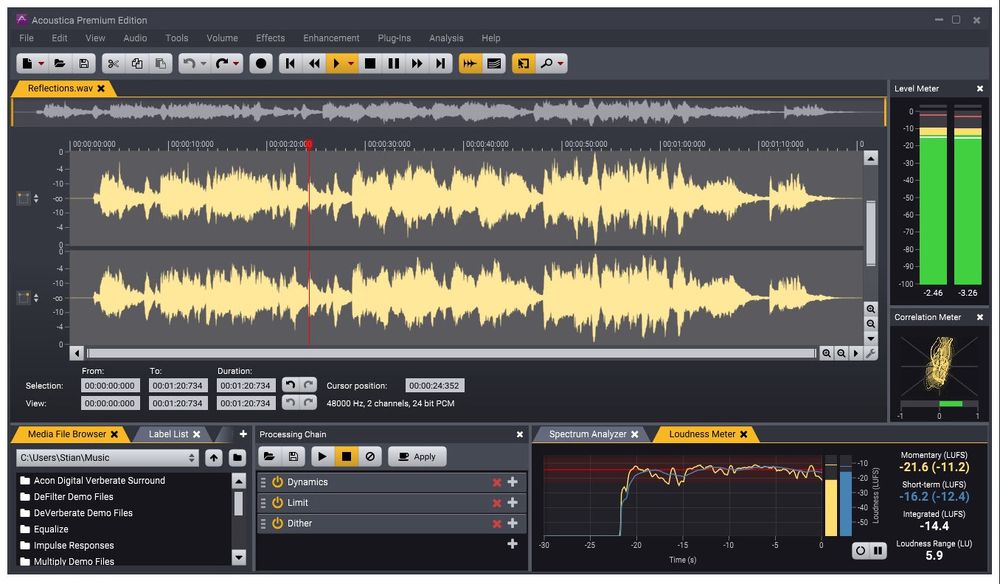
Acon Digital Acoustica 7
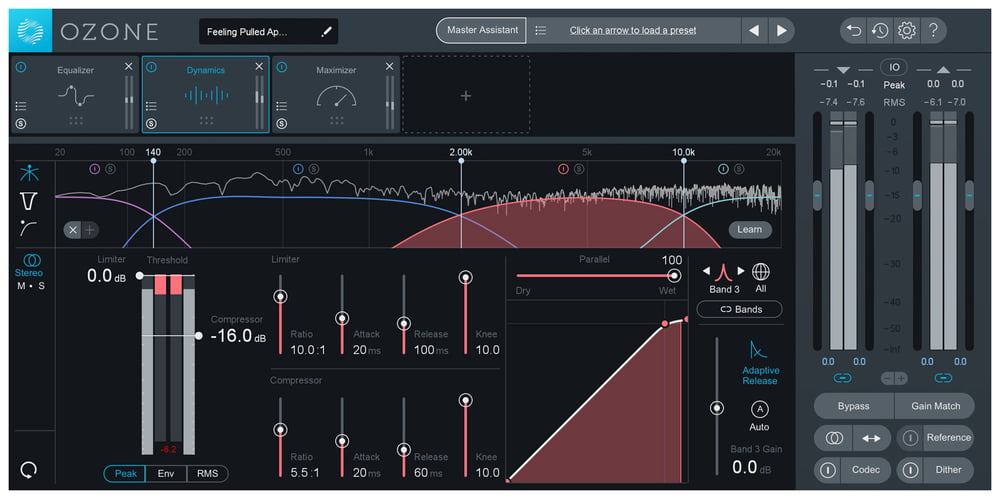
iZotope Ozone 8 Standard
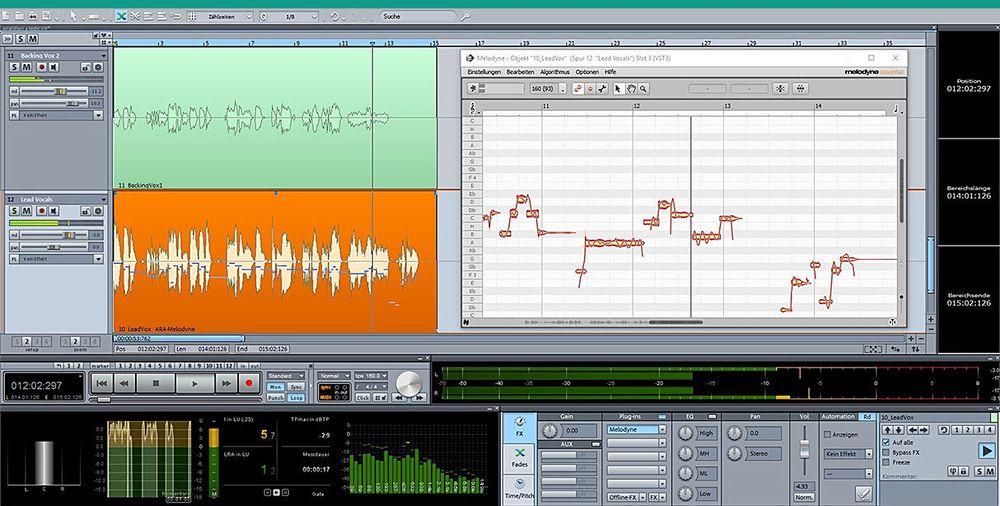
Magix Sequoia 14
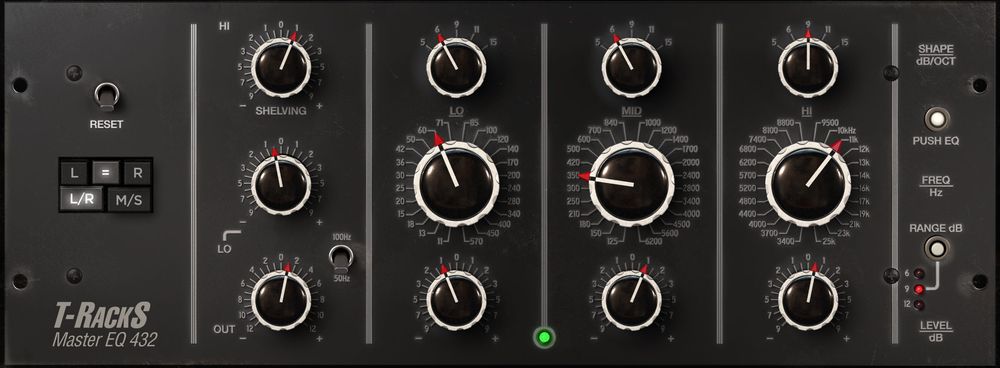
IK Multimedia T-RackS MAX
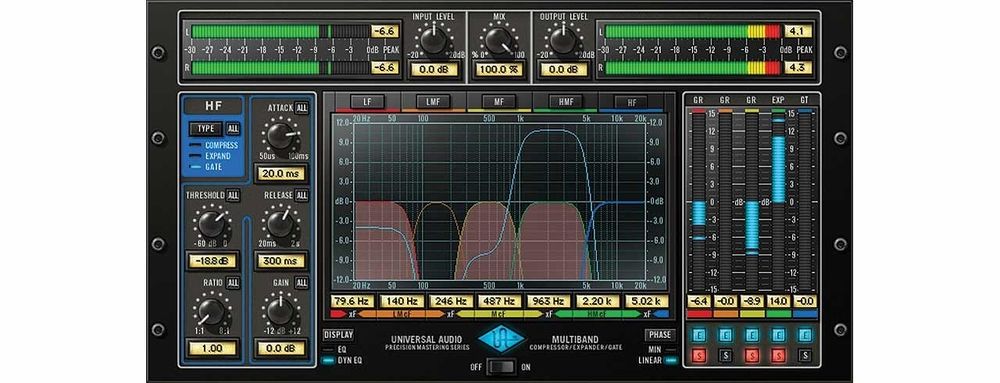
Universal Audio UAD-2
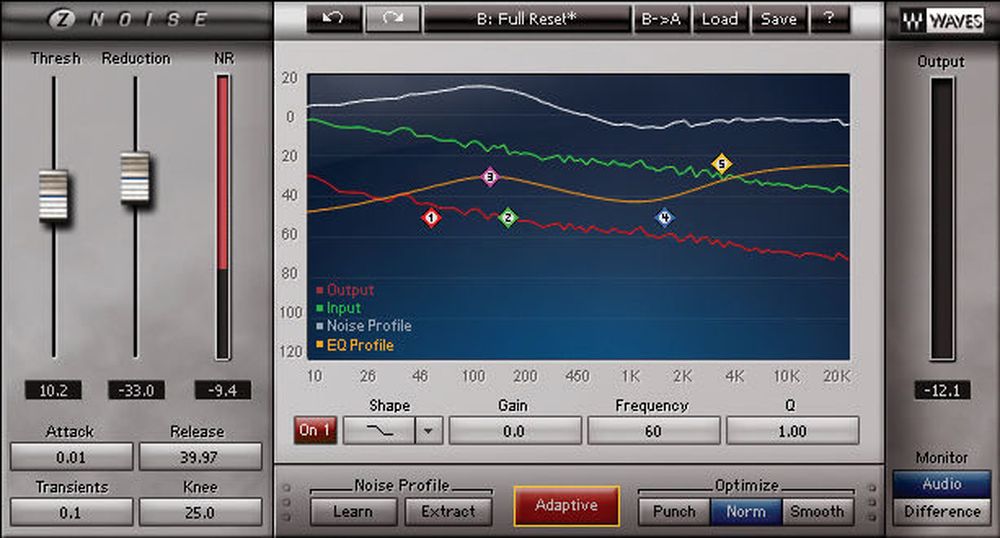
WAVES Diamond
If you're going for analogue or mixed processing setup, your studio should have a high-quality mastering equaliser and compressor. Such devices can be quite costly, though. For your home studio, you should rather invest in good plug-ins. The plug-ins available today, especially the emulations of well-known analogue classics, are extremely good and cost only a fraction of the originals. Should you still have a soft spot for analogue equipment and the necessary budget, you'll find a few typical hardware processors that are frequently used in audio mastering listed below:


